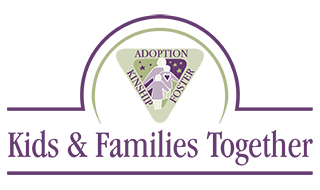Having Faith February 2017
Dear Faith,
We have a fifteen year old daughter that we adopted when she was a year old. She was placed with us at a month old and never returned to her birth mother due to her mother’s drug use and neglect. Her mother did not show up for supervised visits and she eventually lost her parental rights. Her bio mother did not name the father. We were not given lots of information about the rest of her family but we do have her original birth name. We don’t know if she has siblings or not. Our daughter knows she was adopted and we have done our best to give her as much information as possible along the way. Now she is a teenager and she is moody and withdrawn and often approaches us like we are the enemy. It is so hard to know what issues might be related to adoption and what is normal teenage behavior?
—Anonymous
My answer would be that it is probably a bit of both. My niece who was adopted and now has two bio teens of her own posted a wonderful you tube video on Facebook called “Securely Attached Families with Teens.” I would highly recommend watching this as a starting place to remember the challenges that all families are facing while raising teens not just those adopted into the home. The teen years are a time of magnified insecurities and heightened emotions as they grapple with changing hormones and issues related to growing up.
All teens struggle with identity issues, this is intensified for adopted teens. Hopefully, discussing adoption with your child has been a part of what your family holds important throughout your child’s growing up years. As adolescents, their questions grow deeper as they seek to understand their past. They may wonder, “Why was I given away?” “Was there something wrong with me?” or “Do my birth parents regret losing me?” Parents are often caught off-guard when hard questions begin to surface. They may be surprised by the complexity of the questions and not know how to respond. If your teen gives you the silent treatment don’t assume she doesn’t want to talk with you and is only interested in sharing with her peers or other trusted adults. Your daughter might appear emotionally distant, even when she desperately wants to talk to her parents. Adoption issues can be emotional, and discussing them will require patience. Respect your child’s feelings. She might want to discuss something that is uncomfortable for you.
For example, meeting her birth parents. If this is hurtful or uncomfortable for you then try to understand your feelings separate of your daughter with the intention of being fully present for your daughter. Be ready to share all the information you have available regarding her adoption. Many parents want to shield their child from painful aspects of their past. However, as a teen, your child needs to know as much as possible about her birth family. You can help your teen make sense of difficult information and offer your emotional support.
Below are six things adopted teens think about and the questions that arise.
1. Feeling different. Why is my family different from families where all members look similar?
2. Reason for adoption. “Did I do something to cause my birth parents to give me away?” “Why couldn’t they solve their problems and keep me?”
3. Missing Information. “What do my birth parents look like? Do they think about me or know how to find me?
4. Identity. “Who am I? Am I more like my adoptive parents or birth parents?” “How can I figure out who I am if I don’t know much about my birth parents?”
5. Loyalty. “I’ll upset my adoptive parents if I ask questions about my birth parents.” “I worry about my siblings who are growing up in different families.”
6. Permanence. “If my birth parents gave me away, could it happen again?” “I’ll be 18 soon. Will my parents still be here for me after I leave home?”
 Kids and Families Together
Kids and Families Together